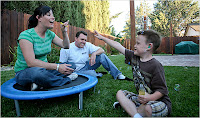What Your High-Functioning Autistic Child Is Likely To Face As An Adult

Moms and dads with children on the spectrum understandably want to know how their kids will cope in the future. However, Autism Spectrum Disorders (ASD) occur across a wide range of strengths and weaknesses, so making an accurate prognosis is difficult, particularly at a young age. Even though the range of outcomes for kids on the spectrum is so broad, the possibility of relatively normal functioning in adolescence and adulthood offers hope to many moms and dads of kids with ASD. The possibility of permanent “recovery” from ASD (in the sense of eventual attainment of social and cognitive skills) has been raised in association with a number of educational and treatment programs. Studies have revealed that there are some kids who have symptoms of ASD in early preschool years who do not have these symptoms in any obvious form in later years. Whether these improvements reflect (a) developmental pathways of very mildly affected kids, or (b) changes in developmental pathways in respo
